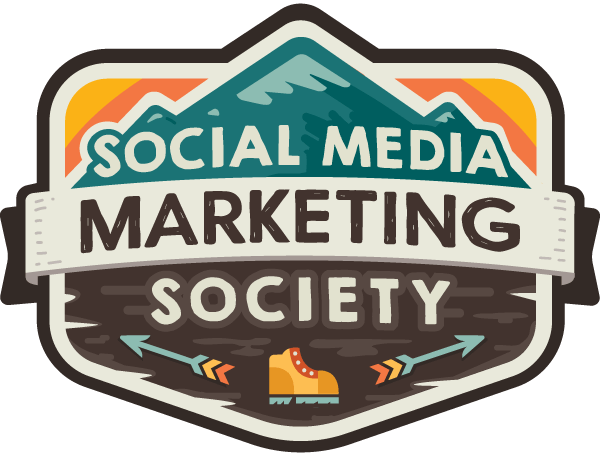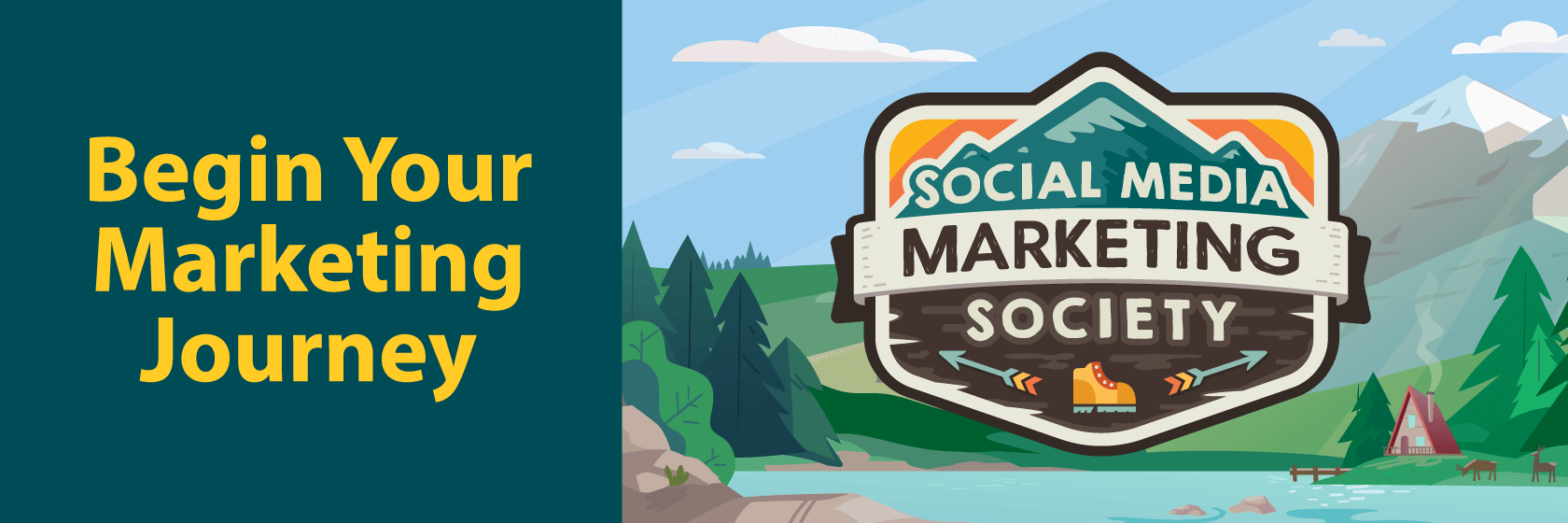Today's Guide to the Marketing Jungle from Social Media Examiner... | Presented by |  |
It's 🥥 Coconut Torte Day, Alluser... It's just such a pretty-looking cake!
In today's edition:
-
Today's 👉 Tip of the Day is for content analysis
-
Marketing with benefits for a 🏁 competitive advantage
-
A brand marketer's next 👣 steps
- Proven tips for growing and marketing a 🔑 membership product
-
🧵 🧵 🧵 More Threads features
-
📲 Instagram Spins in development
-
Free Reddit ⚒️ tools
-
Google business listings + 💬 social media
-
TikTok 🖼️ photos
-
More 🔊 ads options on LinkedIn
-
📣 Additional industry news from Facebook, Meta, YouTube, and more

Want some help analyzing your social media content performance and coming up with an improved content strategy?
Enlist Your AI Chatbot Assistant
Let's say you want to analyze your Instagram posts. Open Facebook Business Suite and download a CSV file of the posts in the timeframe you want to look at.
Next, upload that CSV file to your chosen artificial intelligence (AI) chatbot assistant and give it this prompt:
"Act like a content strategist and specialize in Instagram. Analyze the CSV file. Tell me what's working and not working, and give me a 30-day content strategy for Instagram."
Today's tip is inspired by Nicky Saunders, a featured presenter in the Social Media Marketing Society.

Exciting News, Alluser...
We just opened the doors to the Social Media Marketing Society. It's for marketers seeking ongoing training on the latest topics.
For nearly a decade, the Society has been helping people just like you wrap their minds around the ever-changing nature of our space. Today, AI is the latest disruption, but tomorrow, it will be something else.
You can always trust the training you get with the Society. Plus, you get to make friends with other marketers dealing with the same challenges you face. You'll fit in perfectly.
I'm ready to find out more.

How to Use Benefits to Improve Your Marketing
In a crowded, noisy marketplace, it's tempting to tout every possible feature and attribute of your offering. But customers don't buy features—they buy benefits. They buy the positive outcomes and experiences they believe your product or service will deliver.
3 Main Types of Benefits
Functional Benefits: These are the practical ways the product helps the customer, such as saving time, reducing costs, or solving specific problems. Examples include a car's fuel efficiency or a software's compatibility with existing systems.
Symbolic Benefits: These benefits are about how the product makes the customer feel about themselves or how they believe others will perceive them. Using the product might make them feel successful, sophisticated, environmentally conscious, or part of a desirable group. Apple's sleek designs and Patagonia's commitment to sustainability provide symbolic benefits for many customers.
Experiential Benefits: These are the pleasant sensations or emotions the customer experiences while using the product, such as excitement, comfort, or nostalgia. Disneyland delivers powerful experiential benefits through every aspect of its theme parks. Even products as simple as cinnamon rolls can evoke positive experiential benefits.
The most effective marketing often incorporates multiple types of benefits. For example, a luxury car company might emphasize functional benefits like performance and safety, symbolic benefits like prestige and success, and experiential benefits like the thrill of driving and the comfort of the interior.
Which should you prioritize? One technique to help you decide is called "laddering."
'Laddering'
Start by asking a customer why they like a certain feature of your product. When they answer, ask why that reason is important to them. Keep asking "why" to dig deeper until you uncover the underlying benefit they truly care about.
For example, imagine you're marketing a graduate school program. You might ask a prospective student why they're interested in earning a graduate degree. They might say they believe it will help them get a better job. Ask why getting a better job is important to them. They might explain that a better job will give them financial security. Keep probing to understand why financial security matters to them. You might ultimately discover that what they really care about is being able to provide a stable, comfortable life for their family. That sense of providing for loved ones is the core benefit to emphasize in your marketing.
Market Segmentation
Segmenting your market based on benefits allows you to create more relevant, targeted messaging. Instead of trying to be everything to everyone, you can focus on the two or three benefits that matter most to a specific segment.
For example, in the home insurance market, one segment might care most about comprehensive coverage, even if it costs more. Another segment might prioritize the lowest possible price, even if it means accepting some gaps in coverage. A third segment might be willing to pay a little extra for the convenience and personal touch of working with a dedicated agent. Each of these segments will respond to different marketing messages.
Prioritize Marketing by Segment
Once you've identified your key market segments, it's time to choose which segment(s) to focus on. Consider these factors:
Segment size and growth potential—how large is the segment, and how quickly is it growing? Larger, faster-growing segments may be more attractive.
Competitive landscape—how many competitors are already targeting this segment? What unique benefits can you offer that competitors can't match?
Your capabilities—do you have the right products, services, skills, and resources to serve this segment well? If not, what investments will you need to make?
Alignment with your brand—does serving this segment fit with your overall brand identity and values? Will it enhance or detract from your brand?
Based on this analysis, choose one or two priority segments to focus on first.
Today's advice is provided with insights from Allen Weiss.

How to Become the Face of the Brand You Market
Are you tasked with becoming the face of the brand you're marketing?
It makes sense. People connect with people, not just logos or companies. By putting yourself out there as the driving force behind your brand, you can establish trust and build stronger relationships with your target audience.
Even if customers won't always interact with you directly, they need to know there's a real person behind the brand. This is especially important for small to mid-sized companies.
Putting yourself out there can feel intimidating. Many people worry about looking perfect or saying the wrong thing. Remember, your audience wants to see the real you, flaws and all.
Don't let tech hold you back, either. While it may seem daunting at first, there are user-friendly tools available. Start simple and improve your skills over time.
Creating Content That Showcases You
Showing your authentic self is key to connecting with your audience: share your personality, quirks, and sense of humor. At the same time, you'll need to maintain a level of professionalism appropriate for your industry and brand image. As you move forward, you'll find a balance that feels right for you.
You don't always have to show your face, either. Sharing personal stories, experiences, or thoughts related to your brand can be just as effective for letting people get to know the real you behind the company.
Experiment with these different types of content to see what resonates with your target audience:
-
Personal posts or stories that relate to your brand
-
Short videos sharing your insights on industry topics
-
Podcast episodes featuring your thoughts on your brand's niche
-
Blog posts expressing your unique perspectives
Whatever you choose, your aim should be to create content that demonstrates your industry knowledge while also allowing your personality to shine through. You can even leverage content you've already created, like webinars or live videos, to efficiently produce more content showcasing you.
Finally, make sure to include clear calls to action in your content. Direct people to take the next step, whether it's signing up for your brand's newsletter, following your company on social media, or making a purchase.
Measuring Your Impact
To gauge if your personal branding efforts are working, look for signs of engagement:
Are people commenting on or sharing your content?
Are you getting direct messages from interested customers?
When you make a brand-related offer, do people say they've been following you?
Becoming the face of your brand as a marketer takes courage and effort, but the payoff is worth it. By connecting with your audience on a human level, you'll build a loyal community and attract more customers who resonate with you and your brand's values. Start putting yourself out there today—your brand will thank you!
Today's advice is provided with insights from Sarah Scott.

Curious How Social Media Examiner Does Our Marketing?
We hear it all the time. Marketers love to hear how other businesses do what they do.
That's why we just published, Behind the Scenes: How Social Media Examiner Does Marketing.
You'll learn a lot about how we've evolved our marketing for the Social Media Marketing Society. There are some really powerful gems we've learned.
Watch it on YouTube or listen to the Social Media Marketing Podcast episode.

BTS: How to Successfully Market a Membership Product
Social Media Examiner has been running a successful membership product called the Social Media Marketing Society for nearly nine years.
Marketing a membership product requires continual adaptation and evolution. By staying attuned to our audience's needs, experimenting with pricing and positioning, and highlighting the value of community, we have kept the Social Media Marketing Society going strong for nearly a decade.
You can apply the following tips to many types of membership products to help attract and retain subscribers:
Employ Affordable Pricing and Scarcity
When the Society first launched, we focused on making the membership affordable at just $30 per month. The value proposition was simple: training. We employed a scarcity concept, treating it like a private school with limited enrollment periods. This created a sense of urgency and FOMO (fear of missing out) for potential members.
Introduce Annual Plans
As the membership grew, we realized we needed to address churn due to members canceling their subscription. We found that people on monthly plans often didn't get enough value in the first month or two to justify continuing. To solve this, we introduced a discounted annual plan alongside a more expensive monthly option. This encouraged more people to commit to a full year, giving them time to fully experience the benefits of the membership.
Adapt to a Changing Landscape
Over the years, the social media marketing space has evolved significantly. We've had to adapt the Society to stay relevant to our audience's changing needs and interests. We expanded our training topics to include things like marketing strategy, email marketing, and artificial intelligence.
We also faced growing competition from other membership sites, online courses, and free content on platforms like YouTube. To stand out, we began emphasizing the community aspect of the membership, not just the training.
Revamp the Pricing Structure
Recently, we made some big changes to our pricing:
1. We eliminated the monthly plan and introduced a quarterly subscription alongside the annual option. This gives new members a few months to engage with the membership before deciding to renew.
2. We established a higher retail price for the quarterly and annual plans. However, during specific promotional periods, we offer significant discounts, making the membership much more affordable.
3. We decided to open enrollment year-round rather than having limited windows. This makes it easier for people to join when they're ready, not when the company dictates.
Migrate to a New Community Platform
We also decided to move away from Facebook Groups and launch our own community platform. This gives us more control over the experience and allows for features like searchable member directories, breakout discussion rooms, and direct Zoom integration for meetups and live sessions.
Update the Marketing Messaging
Finally, we refreshed our marketing copy to focus more on the community aspect and the benefits of joining. We now use language that presupposes the reader will become a member, like "when you're a member..." instead of "if you become a member..." This subtle change can have a powerful psychological impact.
We also aim to use warmer, more inviting language, moving away from aggressive "pain point" style copy. The goal is to help potential members envision how the membership can help them navigate the ever-changing world of social media marketing.
Today's advice is provided with insights from Ali Kelly and Michael Stelzner.

🗞 AI-Video Recommendations on Facebook: In a move to enhance its video recommendation algorithm, Facebook is leveraging AI to improve the user experience across Reels, Groups, and the platform's main feed. Facebook head Tom Alison announced this move at a Morgan Stanley tech conference in San Francisco, where he revealed that the social media giant has already implemented the new AI-powered engine for Reels, resulting in an 8–10% boost in watch time during initial tests. Source: Engadget
🗞 Reddit Pro Tools: Reddit has announced the launch of Reddit Pro, a free suite of tools designed to help businesses establish and grow a meaningful organic presence on the platform. These tools include AI-powered insights that surface relevant communities, trending topics, and conversations based on specific categories and brands, allowing businesses to join or start conversations and connect with audiences. Additionally, performance analytics help businesses analyze organic post performance, inform their strategy, and grow engagement. The suite also offers publishing tools to assist with drafting and scheduling profile posts, as well as a Pro dashboard to monitor overall organic engagement and monthly progress. Source: Reddit
🗞 New Threads Features: All users can now save drafts and take photos in the app. Source: @mosseri via Threads
🗞 Long-Form Articles on X/Twitter: The platform has introduced a new feature called Articles, which allows users to create and share long-form content with their followers. The Article composer, accessible via the sidebar on the web version of X, provides a range of formatting options such as bold, italic, and strikethrough text, as well as bullet points and numbered lists. Users can also embed images and videos within their Articles to enhance their storytelling and add visual appeal. Once published, Articles will appear on the user's profile in a dedicated Articles tab and will be visible in their followers' timelines, similar to regular X posts. Access to the Articles feature is currently limited to Premium+ subscribers and Verified Organizations. Source: @Write via X
🗞 Social Posts in Google Business Listings: Google has introduced a new feature within its business listings in Search, which displays recent social media posts from connected profiles. The new sub-section, "Social Media Updates," showcases the latest posts from linked social apps, including Facebook, Instagram, YouTube, LinkedIn, Pinterest, TikTok, and X/Twitter. Business owners can connect these accounts via their Google Business dashboard, and the social post previews are automatically populated based on the linked profiles. Source: Social Media Today
🗞 Meta Advantage Updates: Meta is enhancing its Advantage suite to help advertisers drive performance through video. Key updates include: automatic video ad optimization for Reels and mobile apps; importing videos for Advantage+ catalog ads; using Advantage+ creative with Advantage+ catalog campaigns; expanding Shops ads integrations and introducing them to Partnership ads; new dynamic tools like Reminder ads, promo code highlighting, and ads with product tags; collaborative ads with Advantage+ shopping campaigns; Advantage+ catalog ads with omnichannel reporting. Source: Meta
🗞 Pinterest Search Feature: The platform is introducing a groundbreaking feature called body type ranges, which allows users to personalize their search results for women's fashion and wedding ideas by self-selecting the body types they wish to see. When users search for women's fashion or wedding inspiration, they will be presented with a visual prompt to choose from four body type ranges, enabling them to receive tailored search results that better align with how they perceive themselves. As part of the launch, Pinterest will showcase several size-inclusive brands on its search landing page. Pinterest plans to expand this feature later this year, including its application to men's fashion. Source: Pinterest
🗞 TikTok Monetization: TikTok is expanding its Effect Creator Rewards monetization program to 33 additional regions, bringing the total number of supported regions to 53. The platform also lowered the payout threshold, requiring creators to use an effect in 100K qualified videos within 90 days to start earning rewards. This is a significant reduction from the initial requirement of 500K videos when the program first launched last year. Furthermore, TikTok is updating its payout model, with only effects used in qualified public videos being eligible for rewards. Finally, TikTok is moving away from a flat fee model. It will now follow an RPM (revenue per mile) model, where creators collect rewards based on the total qualified videos that used their effect within the first 90 days. Source: TechCrunch
🗞 TikTok Photos: The platform appears to be gearing up to launch a new app that could potentially rival Instagram, according to recent findings by The SpAndroid. The backend code of TikTok reveals a welcome message suggesting that users will soon receive prompts encouraging them to share still images in the new app. This development follows TikTok's introduction of a dedicated "photo mode" for still images in-stream in 2022, allowing users to share carousel posts of images that automatically display in sequence, accompanied by music that viewers can swipe through at their own pace. Source: Search Engine Land
🗞 Instagram Spins: Instagram confirmed it is developing a new feature for Reels, its short-form video platform, called "Spins." This feature, which is still an internal prototype and not yet being tested externally, would allow users to swap out the text or audio in other users' Reels. The purpose of Spins is to enable users to create trending templates that others can customize and share, potentially reaching a wider audience. According to a screenshot, creators would receive credit for their original Reels each time someone creates a Spin of it. There is no timeline on when or if Instagram plans to launch the feature publicly. Source: TechCrunch
🗞 LinkedIn Thought Leader Ads Expand: LinkedIn has announced an expansion of their Thought Leader Ads format, allowing companies to promote content from any member, not just employees, for Pages they manage. To set up a Thought Leader Ad, brands will log into Campaign Manager and search for the person (by name) or post (by URL) they want to sponsor. The search will provide a list of posts from that member that the brand can choose to sponsor. The expanded Thought Leader Ads format will be available globally by the end of March 2024. Source: LinkedIn
🗞 TikTok Creator Search Insights: Available in select regions, this tool will surface topics that are often searched for, which can be sorted by category (e.g., tourism, sports, science) or "For You" (topics related to the type of content the creator makes). Creators can also filter for content gap topics, which are frequently searched for but not featured in many videos on TikTok. If needed, creators can remove and report search topics by long-pressing the topic they want removed. Additionally, search value will now be incorporated into the Creator Rewards Program, meaning that creating content related to in-demand search topics will improve the search value of a creator's content. To access Creator Search Insights, creators can type "Creator Search Insights" in the search bar, and it will soon be available directly from Creator Tools in Settings. Source: TikTok
🗞 TikTok Sounds for Business – Voice Clips: To help brands create sound-rich content more easily, TikTok has introduced "Sounds for Business – Voice Clips," a collection of 18 custom voiceover audio templates recorded by popular TikTok creators such as Anania, Matt Buechele, Devin Halbal, Good Children, Sani Sisters, and Very Gay Paint. Creators can also use these free tracks effectively with Spark Ads. Source: TikTok
🗞 More YouTube Creator Tools: YouTube is launching several new features and updates. First, the "Known Issues" filter chip is coming to Studio mobile. Second, a new feature will allow creators to find all viewer-made clips of their videos on the Clips Library page; creators can manage all clips made on their videos in YouTube Studio on desktop, with mobile Studio coming soon. Lastly, creators will now see a banner in video details if products are tagged but can't be served because of tag quality issues, products under review, products that have not been approved, or products that have been deleted. Source: YouTube
Did You Know?
The Diphylleia grayi, commonly called the skeleton flower, has white petals that turn translucent when covered in dew or rain. Look it up!

Michael Stelzner, Founder and CEO
P.S. Add
michael@socialmediaexaminer.com into your contacts list. Use Gmail?
Go here to add us as a contact.
We publish updates with links for our new posts and content from partners. Your information: Email:
tukangpostoemel@gmail.com Opted in on: 2021-09-06 17:20:47 UTC.










